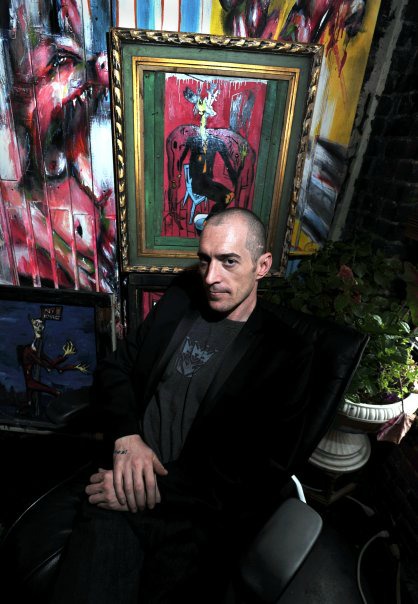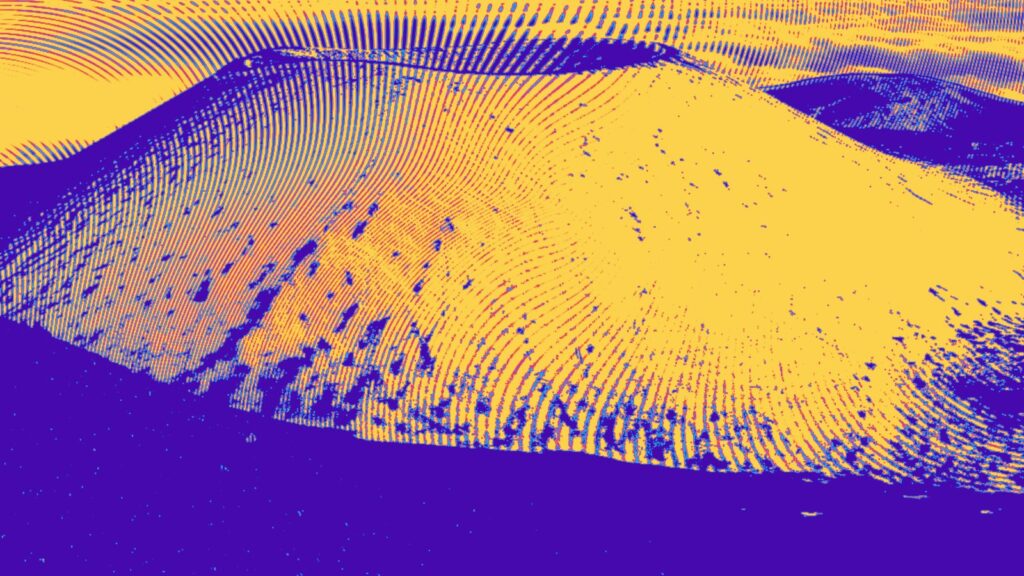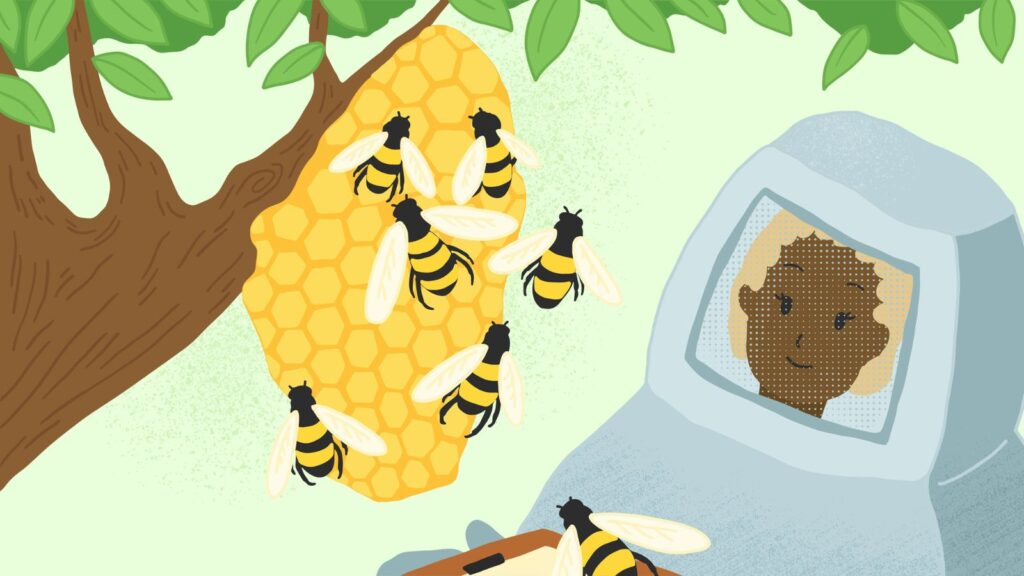The days of Collective Hardware, Bowery's now legendary, ecclectic cultural jam-session in five floors, might be over, but "urban instigator" Stuart Braunstein is just getting started. Back on the scene with his new club WIP (Work In Progress), and his new film 'Don Peyote,' Stuart is a man on a mission. That mission is to spread the healing of ayahuasca shamanism to the most powerful people he can find in this city. Why? "… Because this is New York and we do run the world."
Last month, I spoke with the charismatic Braunstein about his projects and purpose in his room at the Chelsea Hotel. Upon entering, I placed my bag on the floor and reached for my stick of Palo Santo. But just when I turned to ask Stuart if I might clear the space for the interview, I noticed that he was already blessing me with the same sacred Peruvian bark. Stuart doesn't waste any time because he doesn't have any time to waste. WIP is open six days a week, and there is nothing routine about producing an artistic night-life scene that caters to high-profile clientele, carries the torch of Warhol's Factory via the auro of Collective Hardware, and yet is grounded in roots that mingle the most unpretentious street art with shamanic tribalism.
Stuart is an extremely likeable and intense character, something between a Hip-Hop DJ and Michael Corleone. So when he says, "Hey, you got 'Sao Paolo too!," misspeaking the sacred bark for the captiol city, you don't correct him. Details like that don't seem so important, but getting things done does. In fact, few people that I've met carry the authority of uncompromising vision that one feels around Stuart. His mission is ambitious, but one get the sense that if anybody can pull it off, Stuart's the man. Perhaps his words are best understood imagining a smoked-out raspy voice with a New York accent thick as the Hudson. When you read "shaman," think "SHAY-MAN," and you'll begin to sense his character:
How did you get involved with nightlife culture?
Basically, I got involved with nightlife when I was in college. I made a fake ID and got to be a bar tender when I was a sophomore. It was like a rock start job, I got all the girls. And even then I liked the idea of creating fun spaces. When I got out of school I got a job selling school pictures out of the Bronx and Brooklyn. It was really depressing meeting with PTA women. It was horrifying. So I went to Europe for a year and a half, and I came back and met some guy on the Upper East Side with a place called the Cartoon Saloon. I wasn’t really an artist then, but I had been drawing in Europe and this guy said he needed some murals painted. I thought, ‘Oh, I can do that.’
I had no idea what I was doing. He said, “Show me your portfolio,” so I took pictures of other people’s artwork and showed it as my own portfolio. The first time I ever painted I made like fifteen grand painting murals and I hired some kid from art school to teach me how to paint. Then I started getting into design and designing spaces, just doing interior for clubs and bars.
I came up with this concept to do nightlife shows, like vaudevillian type shows, mixed in with the DJ so he’d stop the action, sort of what The Box is doing now I guess, but I did it years ago in a place called Shine. One of the owners of this bar I did on the Upper East Side was opening another bar downtown so I sold him on this idea and we just did it. It was the hottest place in New York, and it was amazing because everything was art. I brought in all these young artists to help build the place, I guess I haven’t changed up what I’m doing too much. I’m still doing the same thing, I’m just doing it better.
Tell us about Collective Hardware, what did you want to see happen, and did you feel satisfied with what you achieved, with what actually happened?
Collective Hardware is the last project where I became emotionally involved with the project. I took a real big emotional hit for that place. Of course, it really did do me well. It got me where I am today, into this new world, and it got me good financing. But it almost killed me. I lived in that place for two and a half years and I just had a bunch of drunks helping me build things. There was no money.
But it was pretty incredible for what we had to work with. It was just really heartbreaking when I lost it. Of course, I got right back on my feet. I started a production company called Complete Happiness Productions and made seven music videos this year. I’ve almost finished making a feature film called ‘Don Peyote,’ which stars Dan Vogler and is a psychedelic romantic comedy about the end of the world… or the beginning of the new world.
Can you tell us how that project came about?
Basically, I met Daniel Pinchbeck at Collective Hardware. We didn’t get along at first. I really wasn’t into the whole New Age thing, didn’t like hippies too much. As a matter of fact, I’m still not too into that whole world, I think it’s just another religious concept that I’m not too into. But I did like what Daniel had to say about consciousness, evolution, and about bringing out a new world where everyone could live more comfortably together. I did like what he was saying.
We became friends and he kept on talking about this shamanic medicine, ayahuasca, ayahuasca, ayahuasca! And, you know, I like drugs… At that time I was doing some bad drugs, and wasn’t really into doing good things. I was on this high from the world, but he pushed me into it and put together this amazing ceremony at Collective Hardware and I was introduced to this shamanic medicine, but I still felt like it was…
So you tried ayahuasca at this point?
Yea, I tried it. I drank it at the ceremony and I loved it. I really appreciate the medicine, but the problem was the shamans. You had to sit there quietly, and I like to participate. I’m not really a tourist, I don’t like doing anything touristy. I don’t like going to concerts, I like doing things. I don’t even like going to clubs. I like to create things. Sitting quietly and watching someone else do work is not something that I do well.
So I went down to Peru, to Chimbre, and I did this really hardcore gangster shaman ceremony down there. They make you drink medicine and stick you in a tent by yourself, which I kind of liked. But I still didn’t understand the medicine and they weren’t really teaching anything. They didn’t tell you how to use the medicine.
So I came back, started shooting more ‘Don Peyote’ and met this guy Salvadore. He was a grip on ‘Don Peyote’ and he was really into medicine. He didn’t understand why no one on the set had done it if we were all making a movie about it. Essentially ‘Don Peyote’ is about medicine and healing, but I was the only one on the set that did it.
We got to know each other over summer, this was prior to opening WIP, and I knew that I wanted to bring a shamanic vibe to this new place, but I didn’t have the people. I needed rock stars, I needed people that were real healers. I didn’t want the fake, hippy, New Age vibe that seemed to be thrown into in the scene too much.
Salvadore showed me that. Salvadore showed me a world of real fuckin’ hard core rock star musicians who only care about healing. That’s all they care about! They don’t care about talking about vibrations and all this other crap. They just care about the healing and using the medicine for the healing through music. It was just this group of hardcore Brooklyn boys getting up there playing music. Everyone was moving and you could join in. I had never played music before, but I learned to play music through these ceremonies. So I found this whole group to bring into WIP, essentially bringing that whole scene in to my new club.
How did that transform you and your sense of purpose in the night life scene?
I’d been out of it for awhile. I’m 42 years old so I’m not really into getting drunk and picking up chicks any more. I needed this place to have a different purpose and my purpose now is what I learned in these ceremonies; that its not 99% vs. 1 %, or religion vs. religion, or love vs. hate, or good vs. evil. We’re all in this together and everything is involved, we’re all connected. We’re even connected to the so-called evil people, and we have to realize that. We have to accept that. We have to bring everybody together.
So I have this powerful platform which I plan to use to do that. This is not just a night club to sell drinks, even though I’m gonna’ use the drinks to pay for this all. What I’m gonna’ do is try to bring very powerful people together to figure how we can all live on this planet, because this is New York and we do run the world.
Nice. Do you think there is a danger of the shamanic culture being appropriated by the machinations of the consumer entertainment industry?
Well, it won’t be because it can’t be. It’s not gonna’ be, you know? I’m sure there’s a lot of shamans out there that do play that game and there’s a lot of shamans that give a bad name to the medicine, I’m sure. I’ve heard some horror stories, but the bottom line is that’s not the group I’m working with. And like I said, there’s good and evil in everything. My goal is the right goal. I pray to Creator and ask to keep me on the straight and narrow, and to use this platform for the right reasons. And so I plan to and so far it has been.
Money becomes a corrupting force for a lot of people and it sends things out of balance. What kind of financial sacrifices have you had to make or do you think you’ll have to make in the future to preserve the integrity of your cultural intentions?
I think the more money I make the better it is right now, because in order to get the attention of powerful people you have to have money. And those are the people I’m going after. For me, money itself means nothing. It’s just a way to eat, travel, and live. I live very cheaply, I own nothing. I’ve never been a materialistic person. I have a computer and a bag of clothes to my name. I just need it to show off to the rich people that I’m trying to get their attention, and it seems to be working.
Lets shift just a little. In the Brooklyn underground party scene there tends to be an extremely open door policy; no velvet rope, all night- even all weekend sequences of parties, participatory art, complex spaces that incorporate chill or massage areas where people can sleep even. This scene is certainly inspired by the underground festival culture that surrounds Burning Man and it tends to facilitate a deep sense of community. What do you think of that culture and how do you see your purpose in relation to it?
Right now I have no relation to it. I’m not doing that. I’m glad that it exists, but it’s not what I’m doing. I’m catering to a different world right now based on the fact that the world you described has probably already seen the light a little bit, and they’re more awake on certain levels. I’m trying to wake up other people, and you have to do that in a way that they can appreciate. It’s called read between the lines.
What about Occupy Wall Street. There are some similarities between festival culture and the OWS protests. What are your impressions of the protest and the living community that has developed?
I guess I’m glad that someone’s standing up, but at the same time, I think screaming in the street is not a way to get things done. No, you know what. I guess I’m wrong. I think certain people are meant for that, just not me. I’m doing things in a different way. We all have our part, some people need to scream in the streets, other people have to do it in different ways.
The way I’m doing it is I’m reaching out to the people that are making the rules and trying to explain things to them in a way that they can understand and accept, because the bottom line is that these people work really hard and they bust their fucking ass, and they don’t want to be told that they’re bad because they’re busting their ass while everyone else is sitting around fucking smoking pot and chillin’. Essentially, that’s what a lot of people do.
So you feel like if you can get at some of the people that are already powerful in entertainment and business and help them see the world a different way… that’s more or less where you’re at?
Yes! I want to feed as much medicine s possible to people that are rich and famous.
So, thinking about politics and the entertainment industry, how important do you think it is that people begin to see the occult and conspiratorial dimensions of political and economic life?
There’s five steps of waking up that I can see, that I’ve been through while I was making this movie. Number one; you realize the whole system is a fallacy, number two; you start to blame others for the problem, number three; you get angry at other people for your problems and the problems of the world, number four; you realize that we are all one, and number five, you live your life with love and compassion for others. Right now, everyone’s at different stages of this and hopefully we’ll all get to the same step at the same time, and we wont have the problems that will happen if we don’t.
What do you want to see happen in, say, ten years with the New York underground scene and the entertainment industry, when this is successful?
I’d like to see the artists have a bigger say. The bottom line is that the artists are the ones out there thinking of ideas, that’s what they do all day. They’re the ones that are analyzing and creating new ways of thinking. If we keep on doing this corporate art with corporate ideas, then nothing is gonna’ change, nothing will get better. The artists are there for a reason. They’re a part of society to change ideas and create better ones, and if we keep on feeding them money and making them do art the way the corporations tell them to, then we’ll be stuck in the same paradigm. I’m hoping to create a new movement. That’s really what I’m doing with this space.
Photo by Linda Obuchoska















